 Your new post is loading...
 Your new post is loading...

|
Scooped by
Gust MEES
|
Makerspaces, Maker Education, STEM, and STEAM are gaining lots of traction in Kindergarten though college level education. Articles, resources on social media, and conference presentations on these topics are proliferating at a rate that most educators are now familiar with maker education.
Makerspaces like vocational shops and science labs are great additions to schools. They often contain the tools, machinery, and technologies associated with making – 3D printers, laser cutters, vinyl cutters, high tech robotics, vocational tech machinery. These are great for educational institutions and learners that can afford them. Learn more / En savoir plus / Mehr erfahren: https://gustmees.wordpress.com/2014/08/20/maker-space-a-new-trend-in-education-and-a-big-responsibility/ http://www.scoop.it/t/21st-century-learning-and-teaching/?&tag=makerspace

|
Scooped by
Gust MEES
|

|
Scooped by
Gust MEES
|

|
Scooped by
Gust MEES
|

|
Scooped by
Gust MEES
|
Jackie GERSTEIN: I absolutely love planning lessons from scratch. I just got a job teaching technology units for a summer camp for elementary age students. I can design and teach whatever I want – planning for a different theme each week. Some of the themes I am planning are: Expanding and Showing Your Personal Interests Through Blogging, Photos, and Videos; Coding and Creating Online Games; Tinkering and Making – Simple Robotics; Hacking Your Notebook; and Creating Online Comics, Newspapers, and Magazines. I have begun the process of planning these classes through reflecting on what the lessons will look like.
Learn more:
- https://gustmees.wordpress.com/2014/10/03/design-the-learning-of-your-learners-students-ideas/

|
Scooped by
Gust MEES
|

|
Scooped by
Gust MEES
|
Jackie GERSTEIN: I've posted about The Other 21st Skills and Attributes. This post provides links and resources about these skills as well as an educator self-assessment. This assessment contains questions to assist the educator in evaluating if and how s/he is facilitating these skills and attributes in the learning environment....

|
Scooped by
Gust MEES
|
Suspends Judgment – Silences the Inner Critic
The ability to hold off on judging or critiquing an idea is important in the process of creativity. Often great ideas start as crazy ones – if critique is applied too early the idea will be killed and never developed into something useful and useable. (note – this doesn’t mean there is never a time for critique or judgement in the creative process – it’s actually key – but there is a time and place for it). (http://www.problogger.net/archives/2007/05/09/9-attitudes-of-highly-creative-people/) Many new ideas, because they are new and unfamiliar, seem strange, odd, bizarre, even repulsive. Only later do they become “obviously” great. Other ideas, in their original incarnations, are indeed weird, but they lead to practical, beautiful, elegant things. Thus, it is important for the creative thinker to be able to suspend judgment when new ideas are arriving, to have an optimistic attitude toward ideas in general. Tolerates Ambiguity Ambiguity tolerance may be… the “willingness to accept a state of affairs capable of alternate interpretations, or of alternate outcomes,” (English & English 1958). In other words, ambiguity tolerance may be central to creative thinking. (http://knowinnovation.com/tolerating-ambiguity/#sthash.XqxhaQh3.dpuf) With the toleration of ambiguity, creativity gives way to new ideas, stimulates the acceptance of others’ viewpoints, and thus raises tolerance, understanding and cooperation. (http://www.academia.edu/2506344/Creative_climate_as_a_means_to_promote_creativity_in_the_classroom
Persists Even When Confronted with Skepticism & Rejection
Learn more:
- http://www.scoop.it/t/21st-century-learning-and-teaching/?tag=Creativity

|
Scooped by
Gust MEES
|

|
Scooped by
Gust MEES
|

|
Scooped by
Gust MEES
|
Presentation about moving from Education 1.0 to Education 3.0; from pedagogy to andragogy to heutagogy; from instructivism to constructivism to connectivism in

|
Scooped by
Gust MEES
|
Schools are doing Education 1.0; talking about doing Education 2.0; when they should be planning and implementing Education 3.0. This post seeks to compare the developments of the Internet-Web to t...
|

|
Scooped by
Gust MEES
|

|
Scooped by
Gust MEES
|

|
Scooped by
Gust MEES
|
This piece was actually sparked by an interview of Lady Gaga by Soledad O' Brien at the Born This Way Emotion Revolution Summit where Gaga stated, "It's time to stop telling learners what to do and start listening for we can do for them.”
One of those accepted practices, sadly, in most educational settings is that the teacher is the authority to be respected and listened to without question. Listening to students is not a practice that is often taught in teacher education programs.
There is a current movement, in some circles, to promote and honor student voice. But, and this is a huge but, if educators are serious about honoring student voice, they need to first learn how to listen, really listen to their students. Students who are given a voice in setting goals gain ownership in what they’re learning. Teachers who listen to what students tell them they need to learn gain more than just a better understanding of the children they teach — they gain clarity on their roadmap to better teaching. And when conversations about teaching and learning are allowed to happen, teachers and students develop mutual trust and high expectations. (Want to Improve Teaching? Listen to Students)
Learn more:
https://gustmees.wordpress.com/2014/10/03/design-the-learning-of-your-learners-students-ideas/
https://gustmees.wordpress.com/2014/05/29/practice-put-students-in-the-drivers-seat-how-to/
https://gustmees.wordpress.com/2014/01/04/practice-better-ways-to-say-i-dont-know-in-the-classroom/
http://www.scoop.it/t/21st-century-learning-and-teaching/?tag=students+voice

|
Scooped by
Gust MEES
|
Conclusion
Even though these weeks were considered a maker education summer camp, there was an expectation from the school and parents that the learning activities incorporated the expectations and rigors of a classroom environment. I could easily identify cross-curricular state and common core standards even though I never taught to THE standards. Never during the sessions were the young learners formally testing, asked to be quiet or sit still, or asked to finish quickly so we can move on. Yet, I believe each of the kids would say that they learned lots . . . . and had fun doing so.
Young makers are more capable than what people (adults) typically believe.
Instead, the making learning activities were structured to honor natural ways of learning along with developmentally appropriate practices. Sadly, it appears that some of these natural ways of learning were “conditioned” out of the young learners through more formalized education as I identified in my observations.
Incorporating making into a learning environment teaches lifelong learning skills such of perseverance, love of learning, working with others, and embracing challenges.
Learn more:
- https://gustmees.wordpress.com/2014/08/20/maker-space-a-new-trend-in-education-and-a-big-responsibility/
- https://gustmees.wordpress.com/2014/08/24/coding-a-new-trend-in-education-and-a-big-responsibility/
- http://www.scoop.it/t/21st-century-learning-and-teaching/?tag=carol+dweck

|
Scooped by
Gust MEES
|

|
Scooped by
Gust MEES
|
Apply New Learning Often and in Meaningful Contexts
The more you can apply what you're learning to your every day, the more it'll stick in your head. The reason is simple. When you're learning by doing, you're implementing everything that makes our memory work. When you're able to connect what you're learning with a real world task, that forms the bonds in your brain, and subsequently the skills you're learning will stick around. . We learn best when we have context, and that applies to new skills as much as it does random facts in school. That's why something like the transfer of learning is helpful when you’re learning a new skill. This means you're applying your new skills in your day to day life in a context that matters. (http://lifehacker.com/the-science-behind-how-we-learn-new-skills-908488422) . Learn more: . - https://gustmees.wordpress.com/2014/10/03/design-the-learning-of-your-learners-students-ideas/ .

|
Scooped by
Gust MEES
|
This is a follow up to a post I wrote, How Do We Learn? How Should We Learn? The purpose of these posts is to encourage educators to examine practices they take for granted, implement without deep...
The following are some suggestions for establishing context (the list is just a start). Ironically, they are practices that are often recommended are best practices in teaching but they aren’t implement as often as they should be:

|
Scooped by
Gust MEES
|
If I ask you or your students, "How do you learn," how many of you could clearly articulate this process? If you can, are the strategies you're using the best ones for learning?
Apply New Learning Often and in Meaningful Contexts
The more you can apply what you’re learning to your every day, the more it’ll stick in your head. The reason is simple. When you’re learning by doing, you’re implementing everything that makes our memory work. When you’re able to connect what you’re learning with a real world task, that forms the bonds in your brain, and subsequently the skills you’re learning will stick around.
We learn best when we have context, and that applies to new skills as much as it does random facts in school. That’s why something like the transfer of learning is helpful when your learning a new skill. This means you’re applying your new skills in your day to day life in a context that matters. (http://lifehacker.com/the-science-behind-how-we-learn-new-skills-908488422)

|
Scooped by
Gust MEES
|
What follows is my Ignite talk for ISTE 2013. It was rejected by the selection committee. As I already conceptualized the talk and think it is such an important topic, I am disseminating my text ...
Via Ana Cristina Pratas

|
Scooped by
Gust MEES
|
Education as it should be - passion-based. As teachers know, every class they teach is different, every student in each of these classes is different and unique. Good teaching entails seeing (really seeing) every student in the classroom, getting to know each of them as the individuals they really are and deserve to be. (Disclaimer: I know this is difficult, if not impossible, for educator who work with hundreds of students at any given time.) The teacher as an ethnography gets to know individual students as individuals, being able to assess what the student needs when. Teaching as a human-humane process translates to knowing when to push, when to pull back, when to ignore, when to encourage, when to praise, when to critique, when to challenge, when to nurture, when to cheer, when to show love.
|



 Your new post is loading...
Your new post is loading...

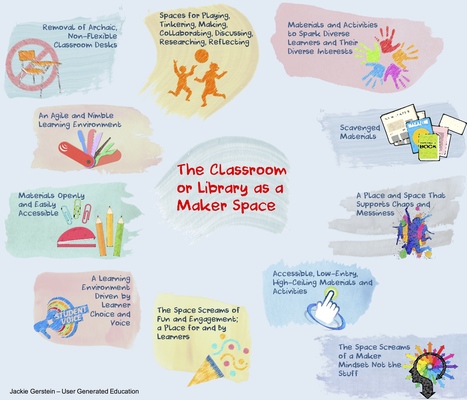


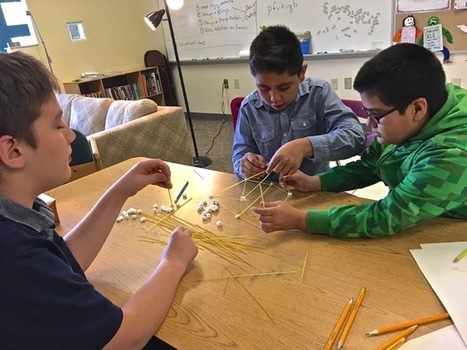

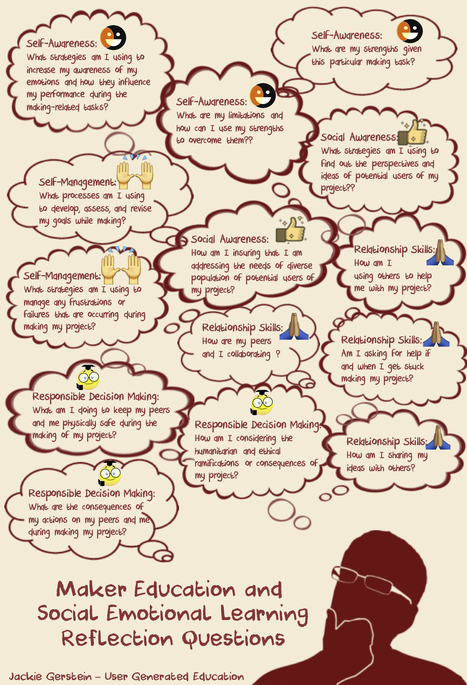


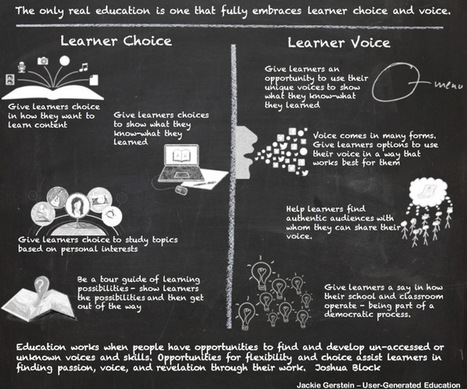


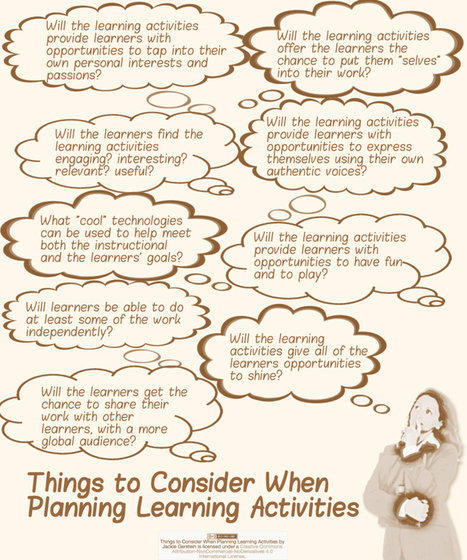


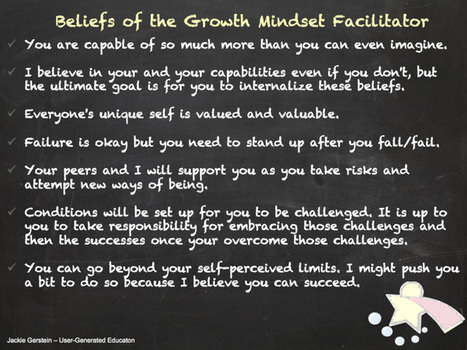
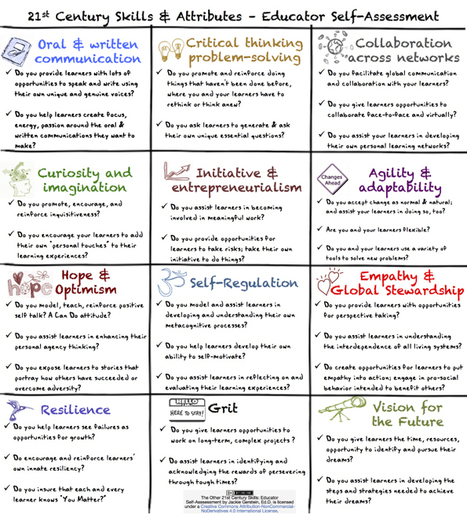



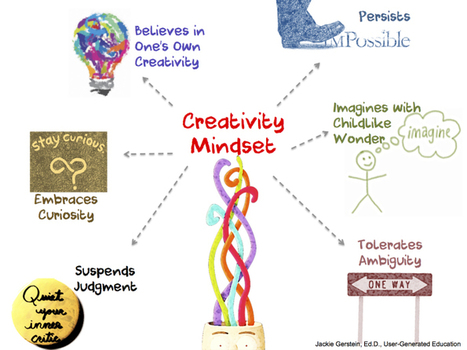



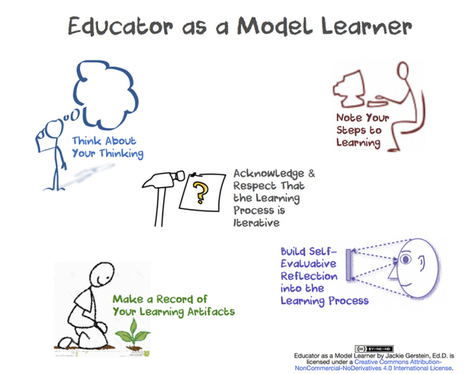

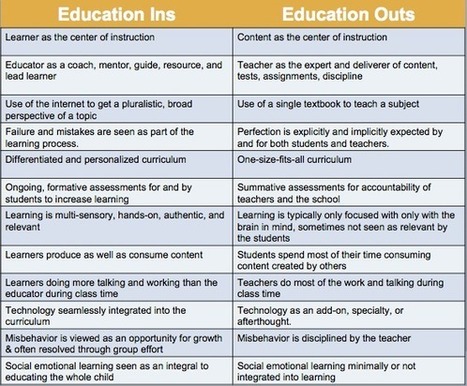



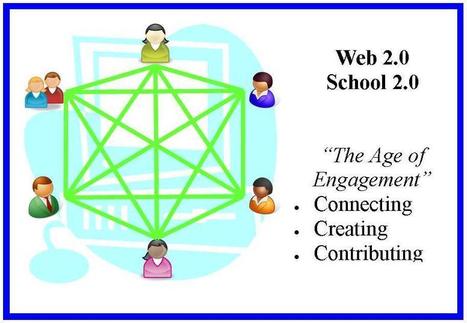
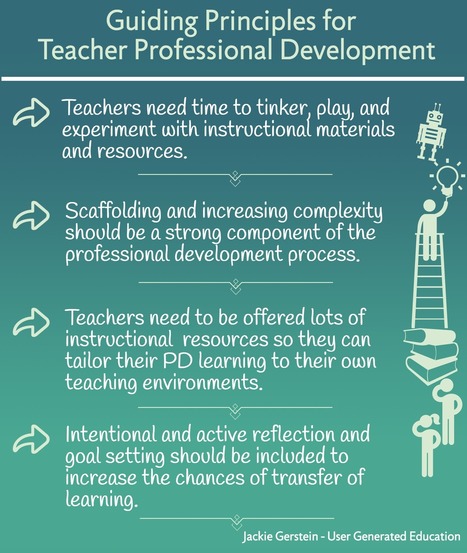


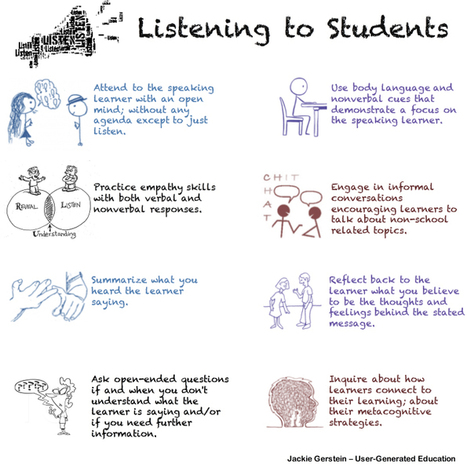



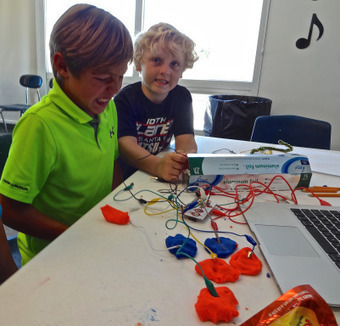
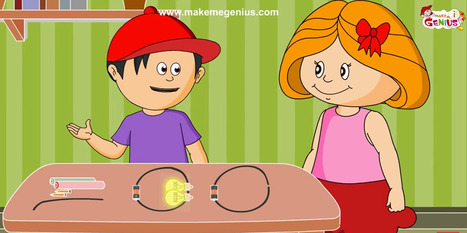
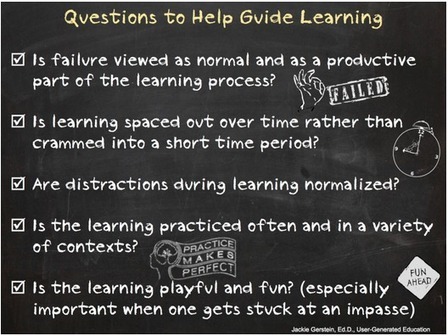



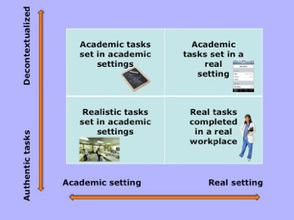
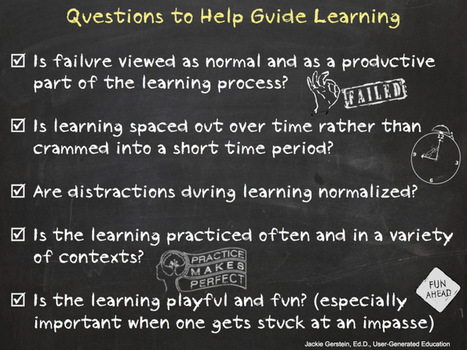


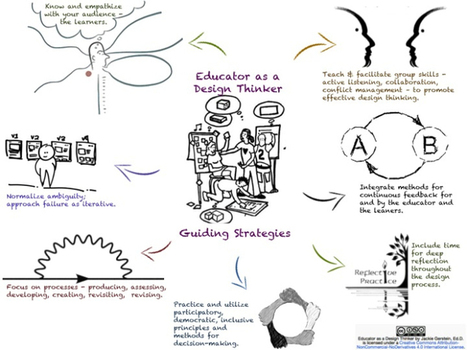



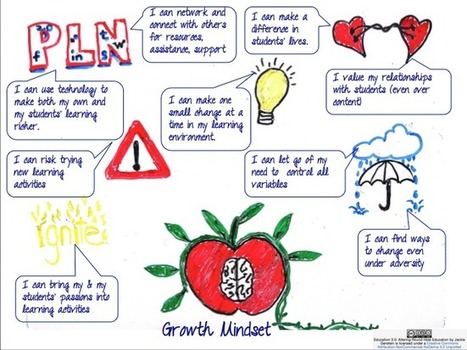










Learn more / En savoir plus / Mehr erfahren:
https://gustmees.wordpress.com/2014/08/20/maker-space-a-new-trend-in-education-and-a-big-responsibility/
http://www.scoop.it/t/21st-century-learning-and-teaching/?&tag=makerspace